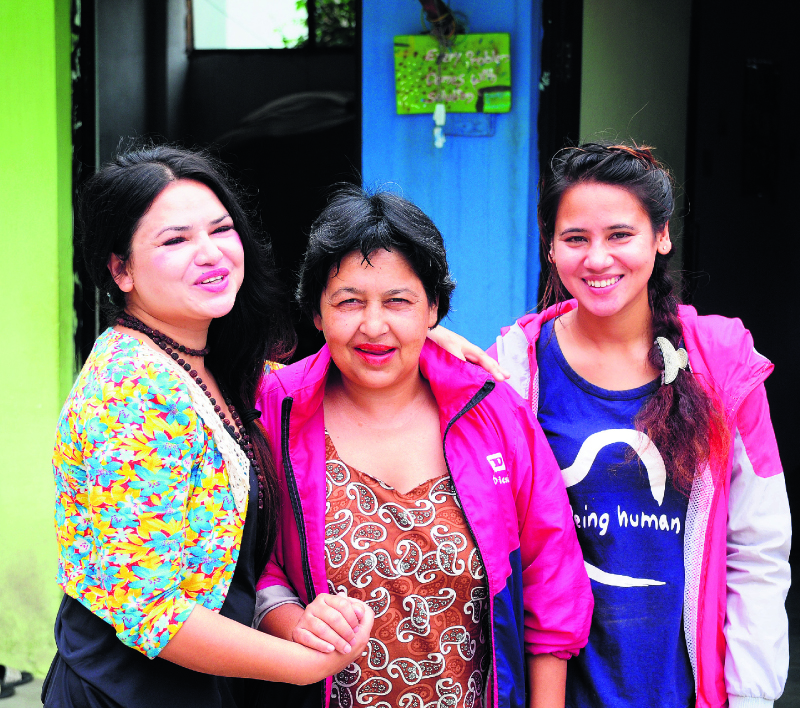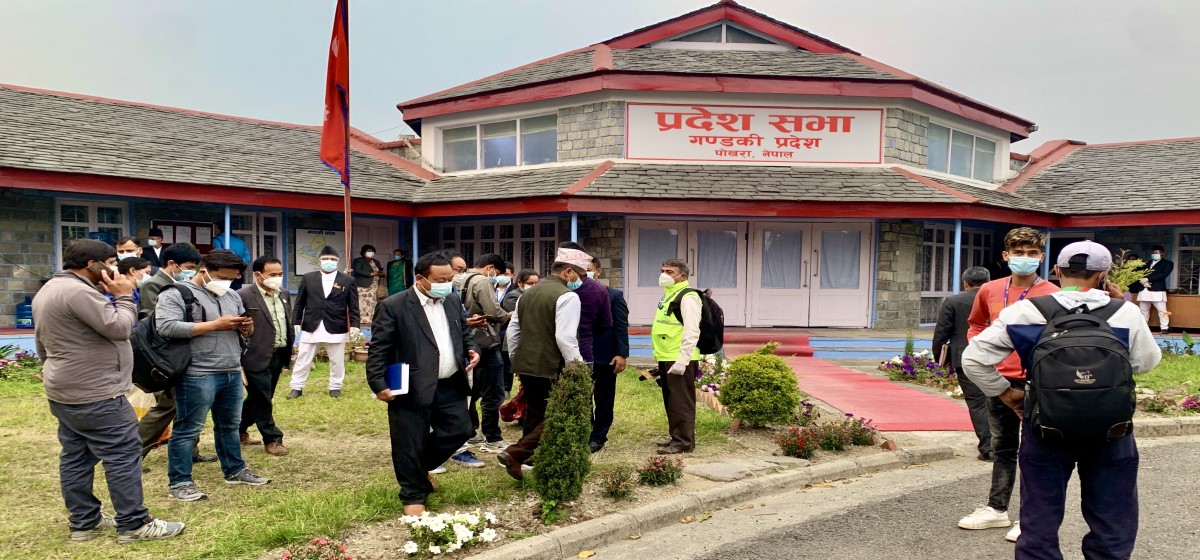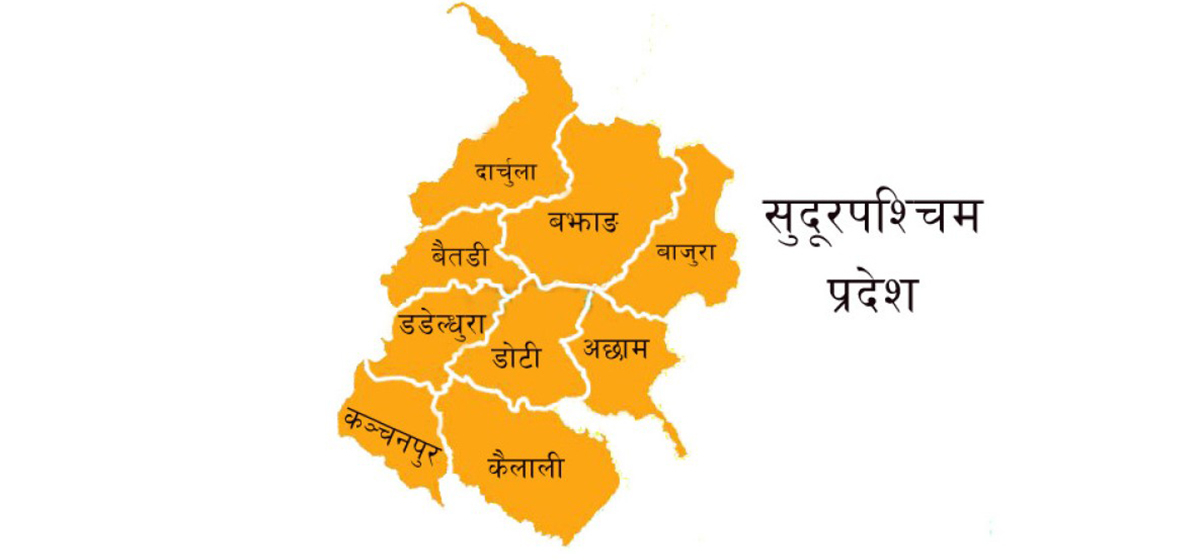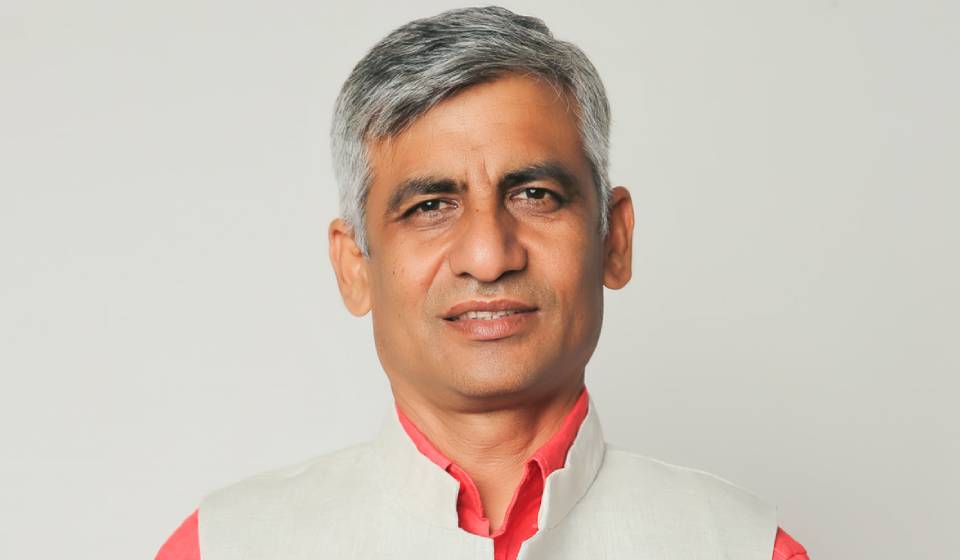
OR

Gita* is now in her 40’s but up until a few years ago, she believed she was a little kid. She didn’t seem to know what she was doing most of the time and would walk around with no clothes on the streets. Even after she was being looked after, and under medication, there were times when she stripped naked and walked around the yard with no clothes on during the winter season. The chill got to her and she fell sick, but somewhere along the road to recovery, two years after she was rescued, she remembered that she has a family in Dhading.
Her rescuers were the founding members of Nepal Snehi Kakha, a non-profit government organization that was established in 2010. It took Shrineha Pokhreal, and Keshab Rijal three years of planning and organizing before the organization took shape. The direction that the organization took was determined by Manoj*, a man Shrineha happened to see walking around outside her house and offered food to. Manoj had been living in the streets for years before she saw him, and this tiny interaction made a big difference in his life.
He accepted her offer of food, and Shrineha and her brothers then took him to the local barbers’ for a shave and a haircut. Looking at the state Manoj was in, he refused to even touch him. This didn’t sit right with Shrineha. In the end, her brothers helped him take a shower and even gave him a haircut, and a shave. They also got him new clothes to wear. “We couldn’t believe the difference this made on his appearance. We then decided to take him to the doctor,” says Shrineha. They didn’t want to send him back to the streets and thus they began rescuing people off the streets.
These days, it’s not just them who find people walking on the streets. They also receive calls for rescue. The first thing they do is call the police to check if there are any missing person’s reports. They only take them in after getting permission from the local authorities. “There are times when we have found naked women on the streets, and the first thing we do is cover them up,” says Shrineha adding that bringing them back though sometimes takes the entire day.
“I think they have had to face so much discrimination while living in the streets that they are scared when people come to talk to them,” says Keshab. They rescue both men and women but due to the lack of space, manpower, and funds, they have had to keep the men separately in Naag Daha at a friend’s house.
“Looking back now, I have memories where I don’t remember my son at all, but I kept dreaming of home all the time,” Gita says. As she took her medicine, she began remembering more about her family and everyone decided she should be reunited with them. Shrineha and Keshab went with her to her village, on the top of a hill in Dhading, only to find out that her husband wasn’t around, her daughter was married and expecting a child at the age of 14 and that her son had been sent to Kathmandu to work in a hotel. She wanted to come back and continue staying and helping out at the organization, and seeing how much she had already improved, the duo decided that it would be for the best. She is now reunited with her son and he is now attending school in Kathmandu.
“Most of the people who live on the streets have some form of Schizophrenia,” says psychiatrist Dr Arun Kunwar. “Only 40 to 50 percent of the cases of this disorder are treatable, so the organization needs to think of a long term plan for the people they are looking after,” he adds. There are several ways the organization can go. They need to first think of a rehabilitation program which can re-introduce recovering people into the society. Then there is the case of trying to find the family members of the patients and if they can’t they need to be able to support these people: They need a long term plan. “Sustaining a mental health organization on a personal level is not an easy task,” he says.
Nepal Snehi Kaakha is indeed facing a lot of challenges and a lot of it stems from monetary issues. Besides looking after the organization, they also work regular jobs in order to sustain the livelihood of the 12 people that are under their care. While Shrineha is an artist, Keshab has an acting school and both their combined incomes go into sustaining people and paying countless bills. Shrineha’s sisters give the organization a couple thousand rupees every month, and they do have a few donors who give them Rs 500 to 1000 every month. This is still not enough.
“A few weeks ago, one of the medicines ran out in the morning. I hoped that things would somehow work out because I was expecting money from someone. When by five in the evening I still had nothing, I had to approach my mother to lend me a thousand rupees,” says Shrineha. They sometimes even make momos and sell them through temporary stalls in Thamel, which helps them generate enough money for rent.
Another big setback they have is the fact that they can’t afford to pay a salary to anyone yet and therefore their counselor too was a volunteer, and she left to pursue a Masters degree. They now have just a trainee counselor who comes to the organization every day to take classes and keep all the women busy doing different kinds of activities. They sing, dance and are asked to remember the date and the day, which is a bigger challenge than it sounds.
“They are easily distracted and often forget everything in a few hours. The only thing they have begun to remember is that they need to drink water when they wake up and after that they need to brush their teeth,” she says.
“We have been approaching the Health Ministry as well as the Ministry of Women Children and Social Welfare hoping that they will recognize what we are doing and help us in whatever way possible. However, nobody has responded to us yet,” says Keshab. Rajiv Pokhreal, speaking for the Ministry of Health, said that they do have a mental health policy and have also created a unit to revise it. For the pilot phase, the ministry is teaming up with several organizations to raise awareness in the rural areas of the country.
“Since we don’t have a separate budget allotted to mental health, it is hard for us to fund organizations like these. Mental Health gets integrated with everything else. There are however five types of drugs related to mental health that we provide for free to those in need. We hope that this brings the organization some sort of relief,” he says.
For the time being, Nepali Snehi Kaakha is doing the best they can. It helps that their landlord is a kind man who understands what they are trying to do and doesn’t pester them for rent. “If we call him and say that we will only be able to pay him three months later, he won’t call us until four months have passed,” says Shrineha adding that this way the organization has at least been able to give these people a place to sleep which isn’t a forgotten corner on the streets. And that gives the people at Nepal Snehi Kaakha something to build on.
upadhyay.isha12@gmail.com
You May Like This

Prem Geet 2: Hope for true love, hope for better films
Though set in Burma, ‘Prem Geet 2’ from the very start talks about nationalism and tries to promote the rich... Read More...

Hope for a hassle-free travel
I used to hear about how ordinary Nepali passport bearers were harassed for no reason in almost every immigration desk... Read More...

RSS NEWS COMMENTARY: Prachanda leaves with a legacy of statesmanship and hope for a prosperous Nepal
KATHMANDU, May 28: Prime Minister Pushpa Kamal Dahal 'Prachanda' on May 24 announced his resignation after serving slightly more than... Read More...






Just In
- Altitude sickness deaths increasing in Mustang
- Weather forecast bulletin to cover predictions for a week
- Border checkpoints in Sudurpaschim Province to remain closed till Friday evening
- Gandaki Province Assembly session summoned
- CM Karki to Speaker: Resolution motion for vote of confidence unconstitutional
- EC reminds all for compliance with Election CoC
- 13 killed, several injured after strike at Al-Maghazi refugee camp in Gaza
- NA team leaves for Solukhumbu to launch Clean Mountain Campaign













Leave A Comment